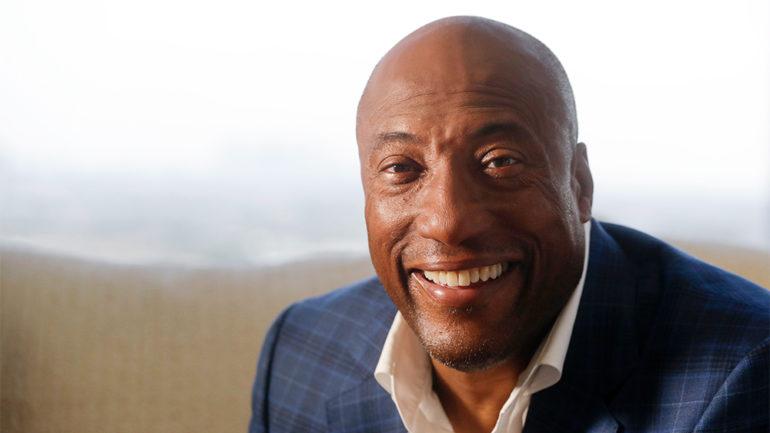Byron Allen’s Discrimination Suit Against Comcast Should Be Allowed to Move Forward
By Cynthia Littleton
LOS ANGELES (Variety.com) – More than anything, the Supreme Court justices seemed bemused.
Comcast executives and entrepreneur Byron Allen came to the nation’s high court on Nov. 13 to duke it out over the racial discrimination case that Allen’s Entertainment Studios has pursued since 2015.
But the question put before the court was a narrow issue of legal precedent and requirements for pursuing a civil rights claim — so granular that Chief Justice John Roberts gently suggested early in the hourlong hearing that the debate was “somewhat academic.” As the hearing went on, it became clear that the conflict was rooted in the two sides jockeying against each other to set up favorable conditions for the burden of proof down the road, should the case be sent back to a lower court.
argued that Allen, who is African American, would need to prove that his lawsuit over Comcast’s decision not to carry seven cable channels owned by ultimately met the “but-for” legal test, meaning that but for racial discrimination, Comcast would have entered into a carriage agreement with Entertainment Studios.
Allen’s team, led by Berkeley School of Law dean Erwin Chemerinsky, maintained that at the complaint stage, the case only needed to provide plausible allegations that race was a “motivating factor” in Comcast’s decision. Allen’s $20 billion suit against the company was dismissed three times by lower courts. Last year, the Ninth Circuit Court of Appeals agreed with Allen that the motivating factor standard was sufficient and that the suit had been improperly dismissed by the lower courts.
“What’s the difference?” asked Justice Stephen Breyer with a touch of irritation. As the hearing wore on, Chemerinsky and Comcast lead attorney Miguel Estrada, of Gibson, Dunn & Crutcher, both were pressed by the jurists to acknowledge that to prevail in the end, Allen would have to prove that Comcast’s denial of carriage met the but-for test. But at the initial complaint stage, Chemerinsky argued strenuously that demonstrating allegations that race was a motivating factor was enough to get the case moving forward — in contrast to previous judges’ decisions to dismiss the case shortly after it was filed. Now, he resisted the justices’ effort to characterize the debate as insignificant in the long run because of what the but-for designation would mean for the legal procedure should the case go to trial.
In civil rights cases hinging on a but-for test, there’s ample precedent for what is known as “burden-shifting” in trial procedure. In this scenario, the burden of proving that Allen faced racial discrimination would shift from a legal standpoint to Comcast to provide “race-neutral” explanations for its decision-making. If race is seen as a motivating factor but not the sole reason for the decision, the burden would be on Allen’s team to prove that he was denied the same right as a white person to make and enforce contracts, per the specifics of the law that Allen invoked in his suit. In effect, this means that while the “motivating factor” standard is the better way to get the case to go to trial, the “but-for” standard may be the better chance for Allen to prevail.
At one point, Justice Neil Gorsuch had a testy exchange with Chemerinsky in which Gorsuch pressed the lawyer to agree with the opinion expressed by Justice Elena Kagan that the Ninth Circuit erred in its appellate decision by suggesting that Allen could prevail in the case even if race were found to be but one motivating factor.
Toward the end of the hearing, Roberts keyed in on the importance of the distinction.
“It seems to me that your focus is on the availability of the burden-shifting mechanism, right?” Roberts asked Chemerinsky. The answer from the noted legal scholar was quick and affirmative.
The focus on the narrow, legalistic issues in the forum that represents the pinnacle of American jurisprudence was frustrating because Allen’s suit raises important questions about access to opportunity and whether that process is truly colorblind. Those issues are bigger than the stakes of whether Allen’s channels are carried by the nation’s largest cable operator.
From the questioning, some of the justices seemed inclined to craft a ruling that would allow the case to move forward into the discovery and deposition phase. The arguments in the nation’s highest court underscored the need for Allen’s most significant claims to be evaluated on the basis of facts and information gleaned through the litigation process. His lawsuit should be allowed to move through the courts on its own merits — not legalese — just as entrepreneurs from any background deserve a bias-free environment to rise or fall on the strength of their business ventures.

